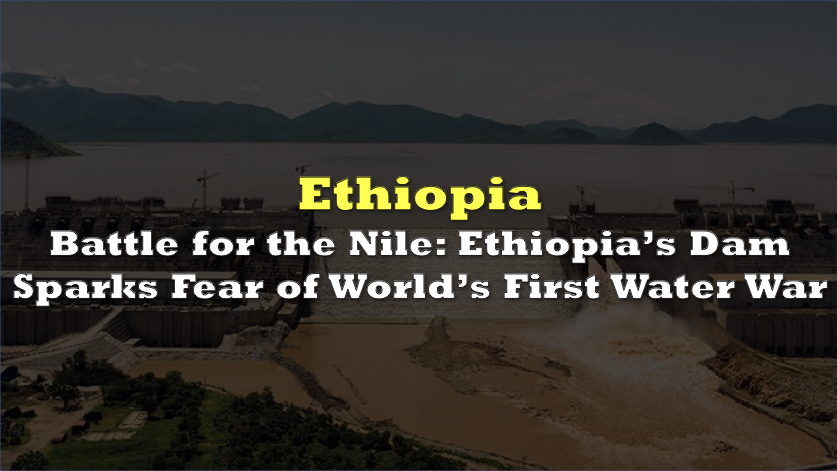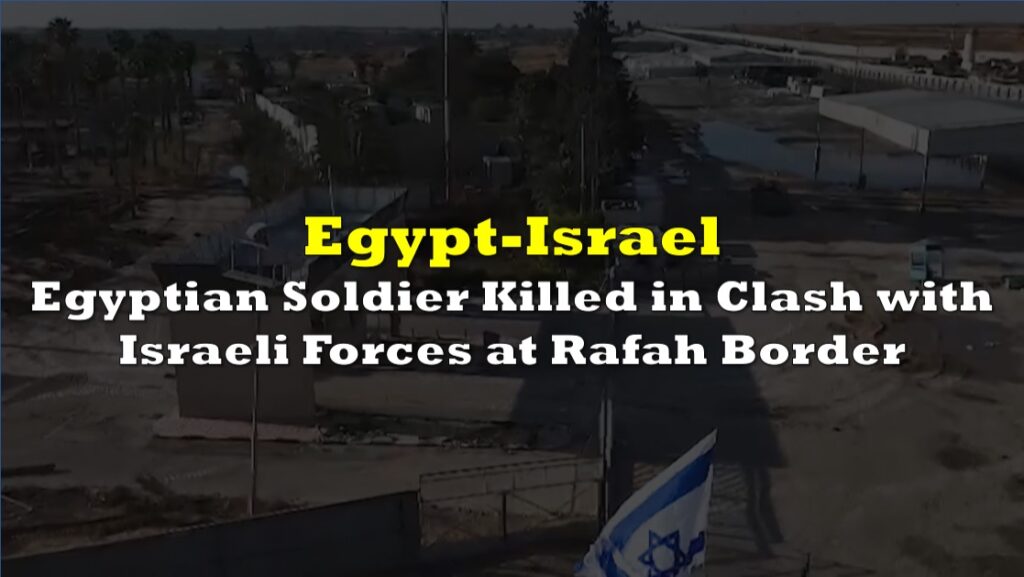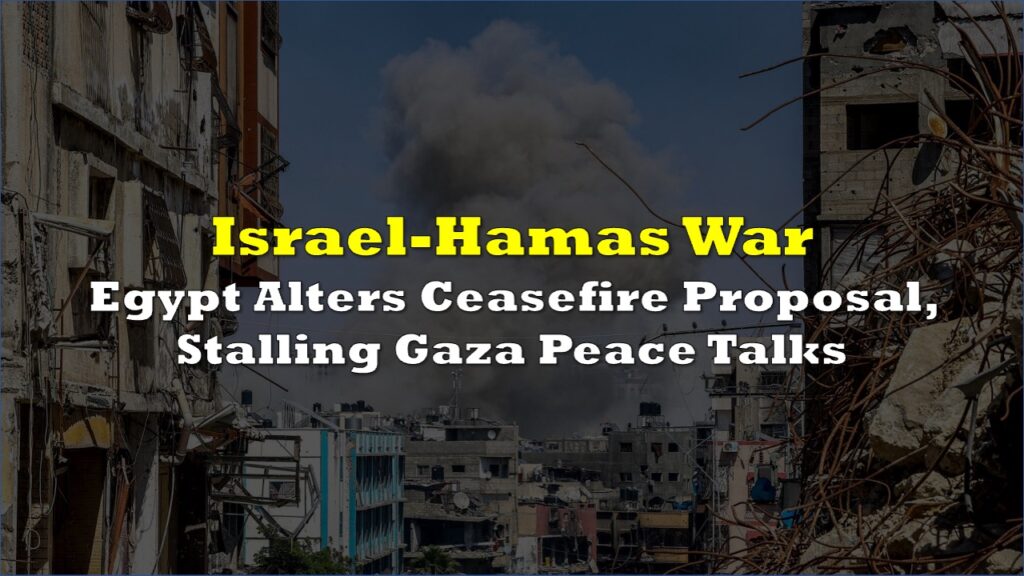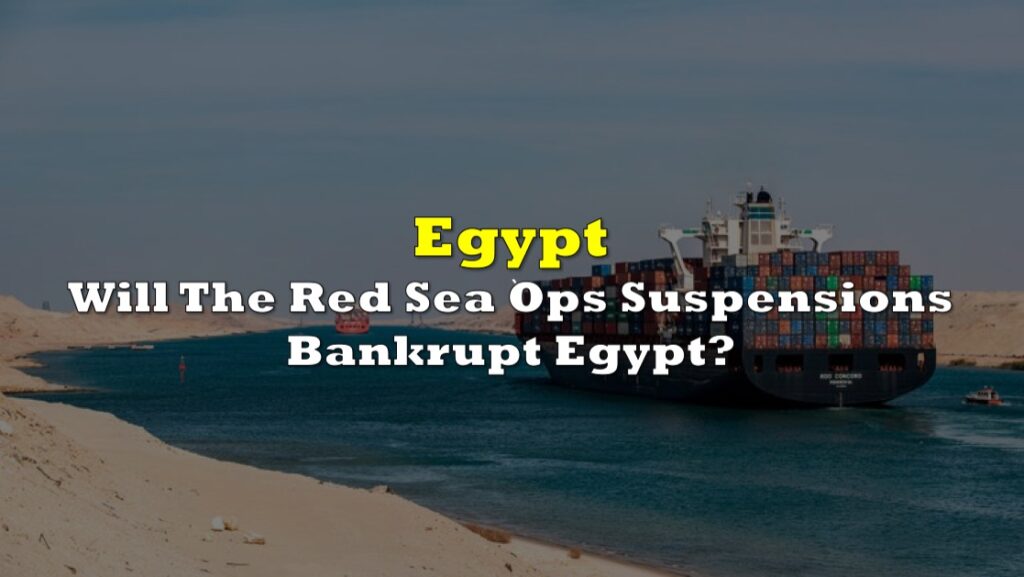The Horn of Africa is witnessing a dramatic escalation in military posturing as Ethiopia initiates a large-scale military buildup near its border with Somalia. This move follows Egypt’s signing of a controversial military agreement with Somalia, which could see 10,000 Egyptian troops deployed in the country.
The increasingly tense situation not only highlights deep regional rivalries but also raises the specter of what some experts are calling the world’s first “water war” over the Nile River.
At the heart of the escalating tensions is Ethiopia’s Grand Ethiopian Renaissance Dam (GERD), a $4 billion hydroelectric project on the Blue Nile, one of the main tributaries feeding into the Nile River. This dam is crucial for Ethiopia’s economic ambitions and energy needs, with the potential to provide electricity to millions of Ethiopians and neighboring countries. However, it has been a source of bitter contention with Egypt, which relies on the Nile for 90% of its fresh water.
In July 2023, Ethiopia announced it had entered the fifth phase of filling GERD’s reservoir, sparking renewed anger in Cairo. Egypt fears that as the dam becomes fully operational, its own water supply will be drastically reduced. For a country with 114 million inhabitants, many of whom rely on the Nile for agriculture and drinking water, the prospect is catastrophic.
Egyptian officials have expressed frustration with Ethiopia’s actions. Despite more than a decade of negotiations, Cairo believes that Ethiopia is simply stalling, with no intention of considering Egypt’s vital water interests.
“We have exhausted all amicable means and are now ready to defend the rights and interests of the Egyptian people,” said an Egyptian government official, reflecting the growing sense of urgency in Cairo.
Egypt’s leadership, under President Abdel Fattah el-Sisi, has repeatedly said that water security is a matter of national survival.
BREAKING:
— Visegrád 24 (@visegrad24) September 4, 2024
Ethiopia starts large military buildup of armored vehicles on the border with Somalia after Egypt signed a military agreement with Somalia through which 10 000 Egyptian soldiers will be deployed in Somalia.
The escalation comes after Ethiopia started the 5th phase of… pic.twitter.com/QKmQFmslWR
The Water War
The Nile River, stretching over 6,650 kilometers, is shared by 11 countries, making it a vital resource for many, but none more so than Egypt and Sudan, which are downstream from Ethiopia’s massive dam project. As Ethiopia continues to unilaterally fill the GERD, Egypt claims that its concerns have been ignored.
Experts have warned for years that the situation could devolve into open conflict. “This could very well be the first large-scale water war we’ve seen,” said one international security analyst, pointing to the strategic importance of the Nile in sustaining millions of people and driving economies across northeastern Africa.
Ethiopia, with a population of 125 million, views the GERD as a matter of national pride and economic progress. Prime Minister Abiy Ahmed’s government has consistently maintained that the dam will have minimal impact on Egypt’s water supply and argues that the project is necessary to lift millions of Ethiopians out of poverty. Yet the lack of a comprehensive agreement between the Nile’s riparian states leaves open the possibility of severe downstream effects for Egypt and Sudan, including a reduction in agricultural output and worsening water scarcity.
The Ethiopia-Egypt dispute over the Nile is not the only issue causing tensions to rise. Ethiopia is also deeply alarmed by the defense pact signed between Egypt and Somalia, a nation with which Ethiopia has a complex history.
Earlier this month, Somali President Hassan Sheikh Mohamud met with Egyptian President Abdel-Fattah el-Sisi in Cairo, where they agreed to a security deal that could see thousands of Egyptian troops stationed in Somalia. While details remain murky, the Somali ambassador to Cairo, Ali Abdi Aware, confirmed that Egyptian military equipment had already arrived in Somalia, marking the “first practical step to implementing” the agreement.
Ethiopia quickly responded, with its foreign ministry stating that Addis Ababa “cannot stand idle while other actors are taking measures to destabilize the region.” The proximity of Egyptian forces on its border has raised alarms in Addis Ababa, particularly given the contentious nature of the GERD dispute.
This military buildup on both sides is occurring at a time when Ethiopia is also involved in a separate dispute with Somalia over Somaliland, a semi-autonomous region that broke away from Somalia over 30 years ago but remains unrecognized by the international community.
A regional standoff
While the GERD represents a pressing international dispute, Ethiopia’s internal struggle over Somaliland adds another layer of complexity to the situation. Somaliland declared independence in 1991, but it remains officially part of Somalia, a situation that Ethiopia seeks to exploit. Addis Ababa is eager to secure access to the Red Sea, a crucial outlet for Ethiopia’s landlocked economy. To that end, Ethiopia has sought a deal with Somaliland to establish a military base on its coastline, in exchange for recognizing Somaliland’s independence.
Somalia’s federal government, however, views Somaliland as part of its territory and opposes any such agreement. This disagreement adds further strain to already fraught relations between Ethiopia and Somalia, exacerbated by the potential deployment of Egyptian forces in the region.
Somaliland itself has strongly objected to the Egyptian-Somali military pact. In a statement, its government said it “strongly objects to any deployment of Egyptian troops in Somalia,” warning that such actions could destabilize the entire region.
The Horn of Africa has long been a volatile region, marked by political instability, insurgencies, and complex international rivalries. Ethiopia’s growing tensions with both Egypt and Somalia raise serious concerns about regional security. The involvement of external powers—particularly Egypt—complicates the situation further, as both Ethiopia and Somalia struggle with internal conflicts and the broader dynamics of the Nile dispute.
While no official confirmation of Egyptian troops being sent to Somalia has been provided, the rhetoric from all sides suggests that the potential for conflict is increasing. Ethiopia’s military buildup along the Somali border signals its readiness to defend against perceived threats, not just from Egypt but from Somalia as well.
Information for this briefing was found via ABC and the sources mentioned. The author has no securities or affiliations related to this organization. Not a recommendation to buy or sell. Always do additional research and consult a professional before purchasing a security. The author holds no licenses.











